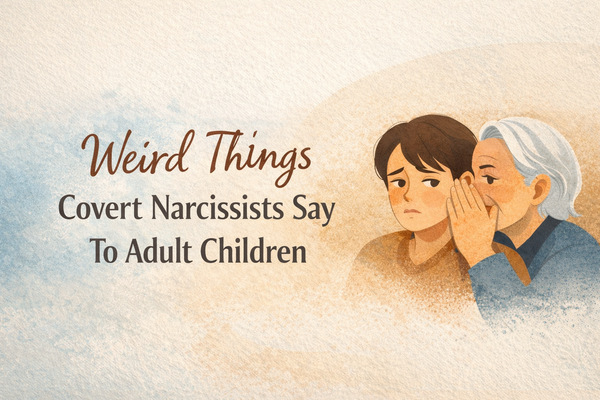I was a Year 1 Resident Trainee in the Psychiatry Program when I first heard about an online Borderline Personality Disorder Test. I wasn’t sure what it was or what to expect from it. Being a Psychiatric trainee myself, I knew what borderline personality disorder was, but not in much depth. I was excited to discover what it was and what it was supposed to reveal about my patients, as well as myself.
I was confused as well as curious if the test was going to tell me whether I had borderline personality disorder (BPD)? Would it change how I saw myself after clicking the “SUBMIT” button? Or was it just like another random quiz on the internet, like “Which movie character from Harry Potter are you?
If you have found yourself asking the same questions, welcome aboard! You are not alone. Despite being a Mental Health Specialist myself, I am just as curious about my mental health as you all are. That is why these tests feel like a quick way to get our answers.
Let me burst your bubble! The truth is that these tests may provide some insight, but they are not an official diagnosis. Just like Mental Health Professionals use the Diagnostic Statistical Manual (DSM)-V or International Classification of Diseases (ICD)-11 for establishing other mental health conditions, BPD also requires an official diagnosis.
So today, let me walk you through what a Borderline Personality Disorder Test can and can’t tell you about your mental health, and what you can do if you might be struggling with BPD.
What Is a Borderline Personality Disorder Test?

A Borderline Personality Disorder Test is usually a questionnaire that gathers information about your behavior, feelings, and thoughts. This questionnaire is designed in such a way that it screens for symptoms commonly associated with BPD.
- Episodes of dissociation
- Fear of abandonment
- Sudden mood swings
- Feelings of emptiness
- Intense anger or difficulty in managing temperament
- Unstable relationships (Black & White thinking)
- Impulsive decision making
While I was attempting the questions myself, I felt as if they were quite personal, such as” Do you often feel people will leave you?” or “Do your emotions change abruptly and intensely?” As I continued to read and fill in the questionnaire, I began to realize that the test was not labeling me as to who I was, but it was reflecting the patterns of living my life.
What Borderline Personality Disorder Tests Can Tell You?
One of the most useful purposes of a Borderline Personality Disorder Test is that it creates awareness amongst those who take it. I like to think of it as holding a mirror that reflects my inner emotional world. It made me notice things about myself that I had previously ignored, such as rapid mood shifts from excitement to frustration to sadness, becoming impulsive over little things, and judging people as entirely good or bad, with no in-between.
So here is what these tests can help us with.
1. Highlight Symptom Patterns.
The test can often depict whether your experiences align with symptoms frequently linked to BPD. For instance, if you observe that your answers are a “YES” to most of the questions regarding unstable relationships, impulsivity, mood swings, and fear of abandonment, you might recognize a pattern you had ignored previously.
2. Give Your Feelings A Language.
Even though I am a mental health professional, when I saw questions about anger or emptiness, it put words into my feelings that I couldn’t describe before filling in the BPD questionnaire. It is powerful because acknowledging how you feel is the first step in the right direction, i.e, seeking help if needed.
3. Encourage You to Take Action.
If you score high on the Borderline Personality Disorder Test, it doesn’t exactly mean that you have BPD. It simply means that it would help if you choose to see a mental health expert. When I started recognizing the patterns that needed to be addressed, I decided to work on them as a psychiatrist.
What Borderline Personality Disorder Tests Can’t Tell You?
Here is the interesting part that most of us overlook. No online Borderline Personality Disorder Tests can replace a professional diagnosis.
1. They Fail to Consider Context.
One thing I realized while filling in the questionnaire was that it didn’t take into consideration the context of my feelings. For example, the test was not able to figure out “WHY” about my mood swings, whether it was because of my PMS, work stress, reduced sleep, or a loss that I was mourning. Therefore, these tests can’t zoom in to see the minute details of the apparent picture.
2. They Are Unable to Rule Out Other Conditions.
Borderline Personality Disorder Tests can’t rule out comorbid or other conditions, such as Bipolar Affective Disorder (BPAD), Post-traumatic stress disorder (PTSD), Depression, and Anxiety, etc. Only a mental health expert can spot these delicate differences.
3. They Don’t Capture Your Unique Journey.
A multiple-choice questionnaire can’t understand where you come from, i.e, your cultural background, your unique battles, your coping strategies, or the resilience you have built over the years. On the contrary, a psychologist can, as they listen to your whole story, without capturing it into brackets, factor in everything that makes you different from everybody else.
The Risk We Can’t Ignore: Self-Diagnosis.
So, a very close friend of mine scored high on the Borderline Personality Disorder Test. She felt disappointed and angry with herself. She was like, “This is it. I have BPD!”. I had to knock some sense into her that mental health doesn’t work like this. Self-diagnosis can be misleading and even detrimental to your peace of mind.
Why though?
Well, the answer is simple. Once you label yourself as somebody who has BPD, you will:
- Interpret all your life struggles through the lens of BPD with tunnel vision.
- Feel hopeless about your future.
- Avoid exploring other possible explanations of certain attitudes, behaviors, or thoughts.
It is like Googling a headache and convincing yourself that you have a Brain Tumor. Online tests available on the internet are useful, but they are not a substitute for professional evaluation and diagnosis.
What To Do in Case You Score High on the Borderline Personality Disorder Test?

As a mental health professional myself, here’s what I recommend based on both personal experience and mental health guidance:
1. Don’t Panic!
A high score on a Borderline Personality Disorder Test doesn’t mean you have BPD. It just means you share some traits or symptoms worth noting and exploring further.
2. Seek Professional Help.
The next most sensible step is to book an appointment with me! Just kidding! I meant a psychiatrist, who could be anyone you think is best suited to explore your symptomatology. They will assess you with structured interviews and standardized diagnostic tools. You can also explore resources like National Institute of Mental Health / for more background information.
3. Start Journaling Your Symptoms.
So I will suggest to you what I advised my friend as well. Start keeping a track of your symptoms, such as mood changes, trigger factors, relationship patterns, etc. This will make sessions with your therapist more productive because this way you will have concrete examples to share.
4. Cautiously Educate yourself, Don’t Overdo It.
It’s good to be at the top of your game, but it’s certainly not a good idea to overdo it. To get accurate information, refer to authentic websites such as PsychologyToday, Youthtabletalk and instead of random forums.
Why Does Professional Help Matter?
I am not vouching for myself here, but here is one thing I have learned through the years of experience during my residency program. A test can spark curiosity, but a mental health professional can offer clarity. A Psychiatrist or a Therapist won’t just tick boxes, they will:
- Spend hours with you in taking a detailed history.
- Explore if you have any comorbid or other mental health conditions.
- Discuss and elaborate on your relationships, work, stressors, triggers, and coping strategies.
- Help you create a genuine and reasonable treatment plan.
The treatment approaches might include Psychotherapies such as Dialectical Behavior Therapy (DBT), Cognitive Behavioral Therapy (CBT), or, at times, medication for co-occurring anxiety/Depression/Self-harm,/Risky behavior.
The Positive Aspect Of Taking The Test
Even though these online Borderline Personality Disorder Tests don’t give an official diagnosis, they have their own set of benefits. It allows you to open up to yourself and acknowledge the feelings you have been suppressing for a long time. It gives you the courage to seek support instead of suffering in silence.
End Note
If you have recently taken a Borderline Personality Disorder Test or are planning to take it, remember that it is just a tool, not an official diagnosis. It can help you to identify your negative patterns, put your feelings into the right words, and empower you to reach out, but it can never give you an official diagnosis.
Your mental health story is far too complex, too human, and too important to be summed up into a mere multiple-choice questionnaire.
If the results leave you feeling uncertain and anxious, consider it a signal to take the next step. Speak to a Psychiatrist, journal your experiences, and explore resources that guide you towards healing in the right direction. If you need to connect with us, feel free to reach out to us at youthtabletalk.com
FAQs
1. Is an online Borderline Personality Test reliable?
Online tests can give you an insight into the symptoms of BPD, but they alone are not a diagnostic tool. Only mental health professionals can give you an authentic diagnosis.
2. Can I diagnose myself as having BPD if I score high?
No, never. Self-diagnosis is risky and often misleading. An online Borderline Personality Disorder Test is just a screening tool.
3. What should I do after scoring high on the test?
Don’t panic! Seek professional help immediately. Take guidance from a mental health expert.
4. What are the treatments for BPD?
Several Psychotherapies, including Dialectical Behavior Therapy (DBT), Cognitive Behavior Therapy (CBT), and medication, can help.
5. Is BPD treatable?
Yes, with the right management and psychosocial support, it is treatable.
References
- National Institute of Mental Health. (n.d.). https://www.nimh.nih.gov/health/topics/borderline-personality-disorder
- Psychology Today. (n.d.).
Dr. Talia Siddiq is a resident psychiatrist in training at Dr. Ruth K.M. Pfau Civil Hospital Karachi, deeply passionate about understanding the human mind and helping people find healing. Beyond her clinical work, she is also a writer who believes that mental health conversations should be easy, relatable, and stigma-free.
She started writing in 2020, turning her reflections and experiences into articles that speak to the struggles many young people silently face—whether it’s self-harm, addictions, relationships, or simply finding direction in life. Over time, her writing has expanded into areas like career guidance and financial independence, because she strongly believes that resilience isn’t just about surviving emotionally—it’s about building a meaningful, balanced life.
For Talia, YouthTableTalk is more than a blog. It’s a safe corner on the internet where young people can pause, reflect, and feel understood. Her goal is not to lecture but to have a conversation—just like a friend who listens, shares, and gently guides you toward growth.
When she isn’t studying psychiatry or writing, you’ll often find her reading, exploring self-growth books, or cooking something new for her family. She brings the same curiosity and compassion to her personal life that she does to her work: always seeking better ways to connect, learn, and inspire.
Through YouthTableTalk, she hopes to remind every reader of one simple truth: you’re not alone, and your story matters.
- Talia siddiqhttps://www.youthtabletalk.com/author/talia-admin/
- Talia siddiqhttps://www.youthtabletalk.com/author/talia-admin/
- Talia siddiqhttps://www.youthtabletalk.com/author/talia-admin/
- Talia siddiqhttps://www.youthtabletalk.com/author/talia-admin/






